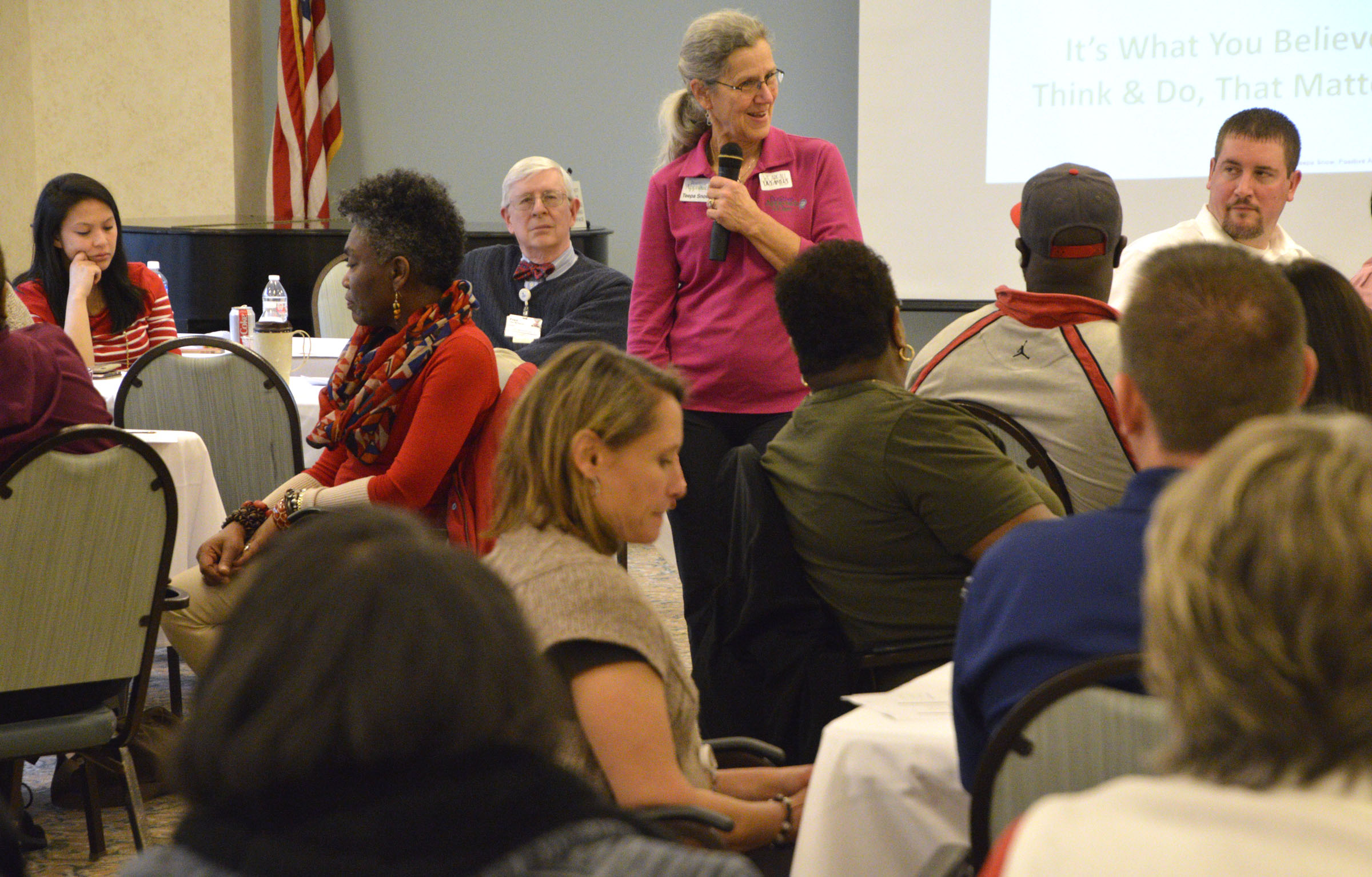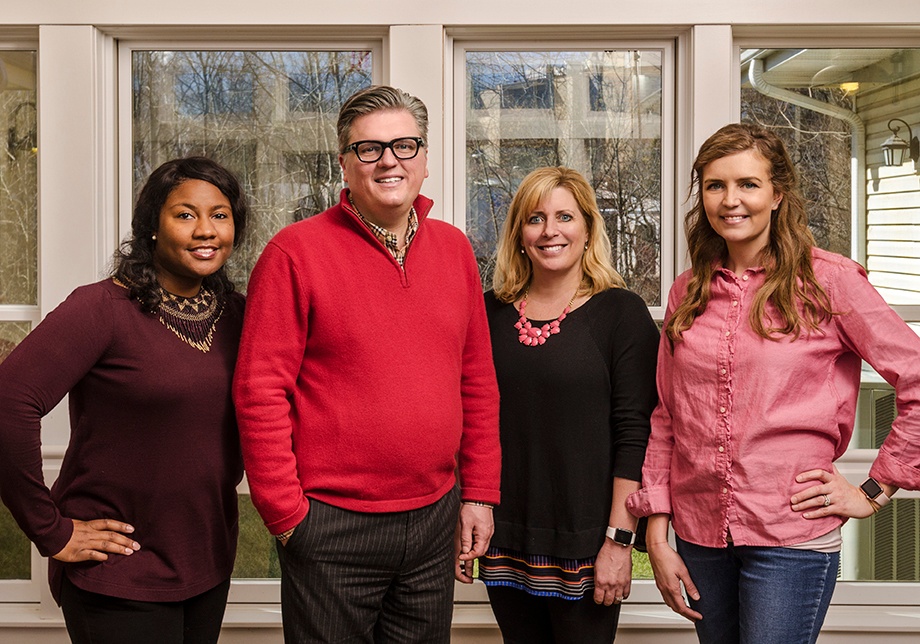 Refresh Your Soul dementia caregiving conference either of the past two years or if you’ve been following this blog, then Teepa Snow is no stranger to you.
Refresh Your Soul dementia caregiving conference either of the past two years or if you’ve been following this blog, then Teepa Snow is no stranger to you.
Over a 30-year career as a Registered Occupational Therapist (OT), Snow gathered knowledge and insights that she’s put in practice to become one of America’s leading experts on memory care and dementia.
Her training program for caregivers, A Positive Approach to Care® (PAC), has been used by dozens of organizations, including Episcopal Retirement Services (ERS), to better prepare their care providers for rendering person-centered memory care.
To date, more than 180 ERS team members have undergone PAC training.
What’s different about A Positive Approach to Care®?
Most dementia caregivers have undergone training on what dementia is. They understand the changes that dementia causes in a person’s behavior, memory, and coordination over its progression. They know what causes those changes — or at least science’s most current understanding of those causes.
But many caregivers don’t realize how their approaches to such changes should be modified over time. They don’t necessarily understand, as Snow puts it, how to “live in relationship with a changing brain.”
That’s what A Positive Approach to Care® focuses on.
Snow says that her program teaches caregivers the hands-on skills, interpersonal skills and treatment techniques they’ll need to render effective memory care.
If a caregiver understands how to respond to a person's change in cognition and abilities in ways that aren’t harmful or offensive, he or she can improve the overall quality of life for the person living with dementia, and for the family members affected by their loved one’s diagnosis.
In essence, the program seems to teach caregivers how better to “read” patients with dementia — people who might not be able to articulate the emotions they’re feeling, report the physical pains they’re experiencing or reliably communicate with those around them.
We are fortunate to have two PAC trainers: Emerson Stambaugh, Executive Director of Hospitality for ERS; and Tracie Martella, RN, Director of Nursing, Deupree House and Cottages. They plan opportunities for PAC instruction, even classes taught by Teepa herself.
ERS also has two coaches: Daneika Farmer, Household Coordinator at Deupree Cottages; and Stephanie Biros, RN, BSN, Nursing Care Team Manager at Marjorie P. Lee. Coaches encourage teams to huddle often. They are also available for support and to encourage the positive response. More than 200 ERS team members have been trained and are practicing PAC.

Daneika Farmer, Emerson Stambaugh, Tracie Martella, and Stephanie Biros lead ERS training and coaching for A Positive Approach to Care.
What A Positive Approach to Care® looks like in practice
The Hand Under Hand (HUH) technique, which staff learns as part of PAC training, has made a big impact on ERS staff and residents. "A resident who needs direction when walking from place to place accepts direction when a caregiver uses the HUH technique," says DD Farmer, Deupree Cottages Household Coordinator.
How does it work? A caregiver makes and maintains eye contact, puts one hand under the resident’s hand and another on her back to guide her toward their destination.
"Before learning the HUH technique, staff prompted the resident with cues like “no, come this way,” or “turn around,” when trying to guide her to a seated position," says Farmer.
"After learning HUH, the staff and resident had more positive conversations with smiles and laughter."
All it took was establishing good eye contact and the positive-approach hand-positioning.
How Snow’s training dovetails with ERS’s person-centered approach to care
In treating dementia and other cognitive disorders, it can often be hard to understand what a person is trying to communicate.
As Farmer realized, often there are confounding factors — physical, emotional or spiritual stressors — that cause negative behaviors.
Most family caregivers and even many professional caregivers don’t always know how to properly acknowledge, investigate and address those stressors. PAC teaches them how to become more empathetic, careful observers and more measured responders.
That’s the essence of person-centered care. Caregivers who know to modify their own behaviors to do what the person with dementia needs, rather than what the caregiver wants to accomplish, can render more effective aid and achieve better outcomes.
We’re happy to include Snow’s program in our own training here at ERS. And we look forward to the next time she comes to provide our teams with additional training.












